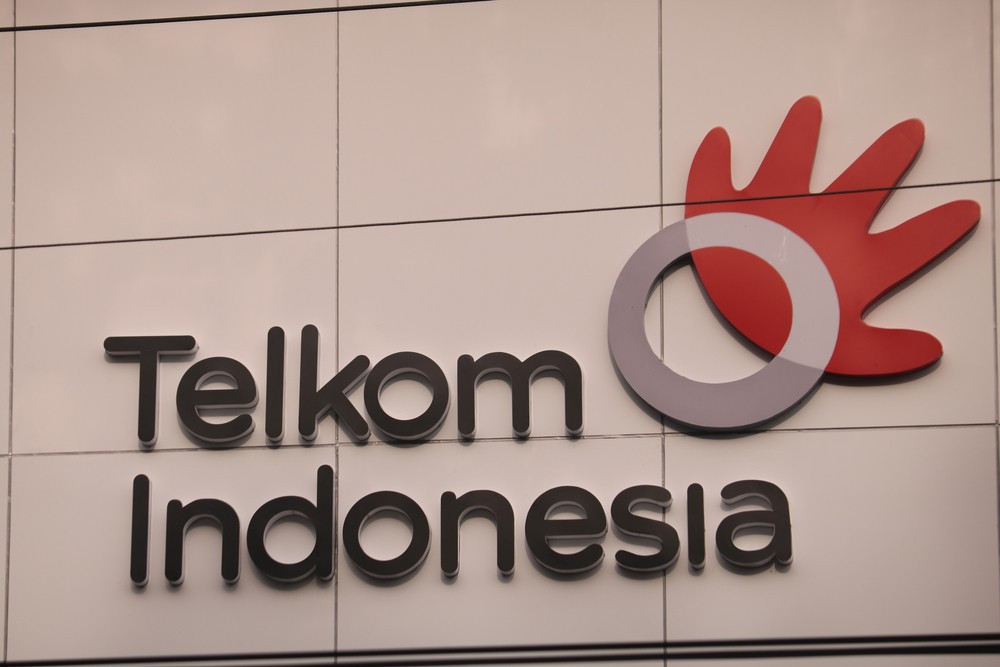News
Telkom loses 1.4 GHz BWA to Hashim, Sinar Mas firms
Tenggara Strategics November 11, 2025 PT Telekomunikasi Indonesia Tbk, commonly known as Telkom Indonesia, is a multinational Indonesian telecommunications conglomerate. (Shutterstock/Faishalabdula)
PT Telekomunikasi Indonesia Tbk, commonly known as Telkom Indonesia, is a multinational Indonesian telecommunications conglomerate. (Shutterstock/Faishalabdula)
State-owned telecommunications giant PT Telkom Indonesia (Telkom) has faced tough competition in the government's bidding for broadband wireless access (BWA) rights on the 1.4 gigahertz (GHz) frequency spectrum. The government intends to use this frequency to deliver fast and affordable household internet—targeting 20 million homes with minimum speeds of 100 Mbps and monthly fees of around Rp100,000. As it turns out, Telkom lost bids in all three regions across Indonesia, with the winners being companies affiliated with President Prabowo Subianto 's brother, Hashim Djojohadikusumo, and the Sinar Mas Group conglomerate.
PT Telemedia Komunikasi Pratama (Viberlink), a subsidiary of PT Solusi Sinergi Digital (Surge), won BWA rights for Region I, covering Zones 4, 5, 6, 7, 9, and 10, which span Java, the Maluku Islands, and Papua—home to more than 60 percent of Indonesia's population. Meanwhile, PT Eka Mas Republik (MyRepublic), a subsidiary of PT Dian Swastatika Sentosa, part of the Sinar Mas Group, secured BWA rights for Regions II and III. Region II (Zones 1, 2, 3, 8, and 15) includes Sumatra, the Riau Islands, the Bangka Belitung Islands, Bali, and the Nusa Tenggara Islands, while Region III (Zones 11–14) covers Sulawesi and Kalimantan.
Viberlink won the Region I bidding with Rp403.76 billion (US$24.19 million), while MyRepublic's winning bids for Regions II and III reached approximately Rp300.89 billion and Rp100.89 billion, respectively. In comparison, Telkom had bid Rp399.76 billion, Rp259.9 billion, and Rp80 billion for the three regions. MyRepublic had also bid Rp331.77 billion for Region I, while Viberlink's bids for Regions II and III were Rp136.17 billion and Rp64.41 billion.
The bidding was held by the Communications and Digital Affairs Ministry (Komdigi) from Oct. 13 to 15, following a bidding process launched on July 28. The ministry aims to expand affordable home internet access, noting that only 21.31 percent of Indonesia's 69 million households are currently connected to fixed broadband. Komdigi requires the bidding winners to connect 20 million households, nearly double the 10.1 million homes currently served by Telkom's IndiHome, Indonesia's largest fixed broadband service.
The 1.4 GHz network will also be used to connect public facilities, including schools, community health centers (puskesmas), and local government offices, using fixed wireless access (FWA) technology. FWA works by transmitting wireless internet signals from base transceiver stations (BTS) connected to a wired internet backbone to consumer premise equipment (CPE) such as home modems. This method eliminates the need for direct fiber-to-the-home (FTTH) connections, reducing costs in areas where fiber rollout may be uneconomical due to low population density.
However, the winning bidders still need to build extensive network infrastructure, secure BTS sites, and address the rising costs of components such as CPEs, which have increased following the bidding announcement due to anticipated demand—similar with trends observed in Japan. The Indonesian Internet Providers Association (APJII) noted that most existing BWA networks in Indonesia operate at 1.8, 2.1, or 2.3 GHz, meaning the 1.4 GHz spectrum will require new ecosystems and compatible devices. Additionally, FWA's scalability may be limited, as a BTS's capacity must be shared among multiple households.
Following its win, Viberlink announced partnerships with PT Tower Bersama Infrastructure (TBIG) and PT Centrama Menara Indonesia (CENT) to build 50 BTS units. The company is also collaborating with Huawei Indonesia and Qualcomm Technologies Inc. to develop an end-to-end ecosystem covering the core network, radio systems, and CPEs. For its Radio Access Network (RAN), Viberlink will work with OREX SAI, Nokia, Huawei, Baicells, and Fiberhome.
Given the critical role of telecommunications infrastructure in supporting economic growth and living standards, the success of this affordable internet program could deliver major benefits to Indonesia. Private sector participation could also allow Telkom to focus on more lucrative projects. However, the project's feasibility remains uncertain due to cost pressures—and the government must ensure that potential conflicts of interest are avoided, especially as Hashim Djojohadikusumo already heads the task force for President Prabowo's 3 million subsidized housing program.
What we've heard
Sources inside Telkom and PT Telekomunikasi Selular (Telkomsel) revealed that Telkom deliberately chose to lose in the auction for broadband wireless access services in the 1.4 GHz frequency band. According to them, neither Telkom nor Telkomsel currently have the supporting infrastructure needed for broadband wireless access services using the 1.4 GHz frequency.

